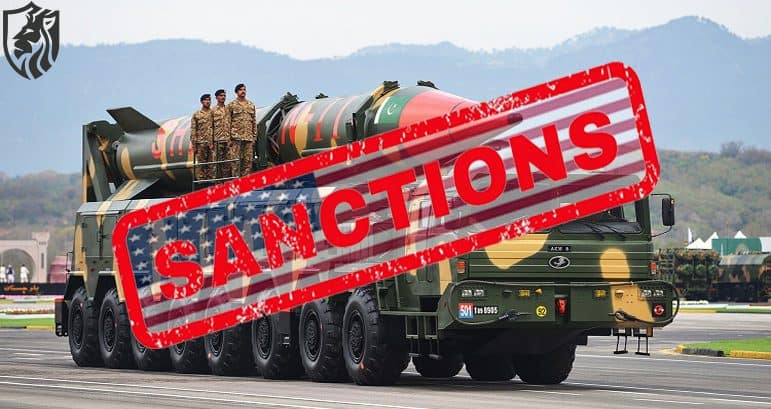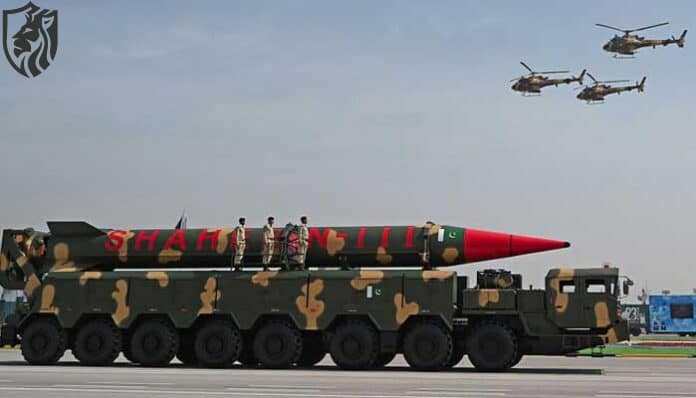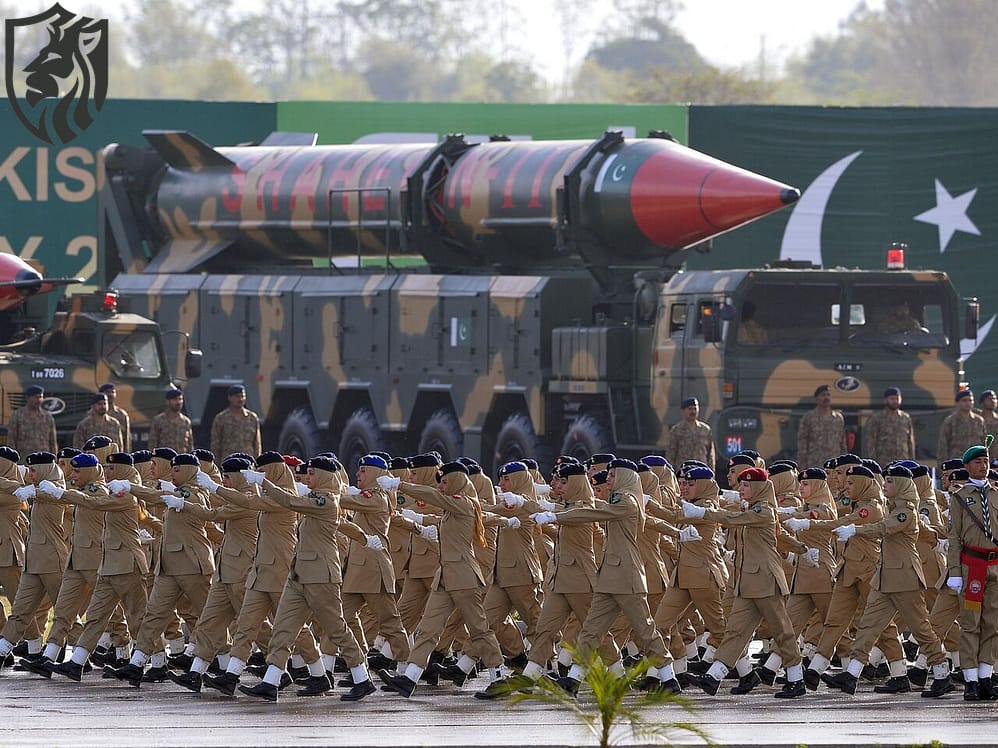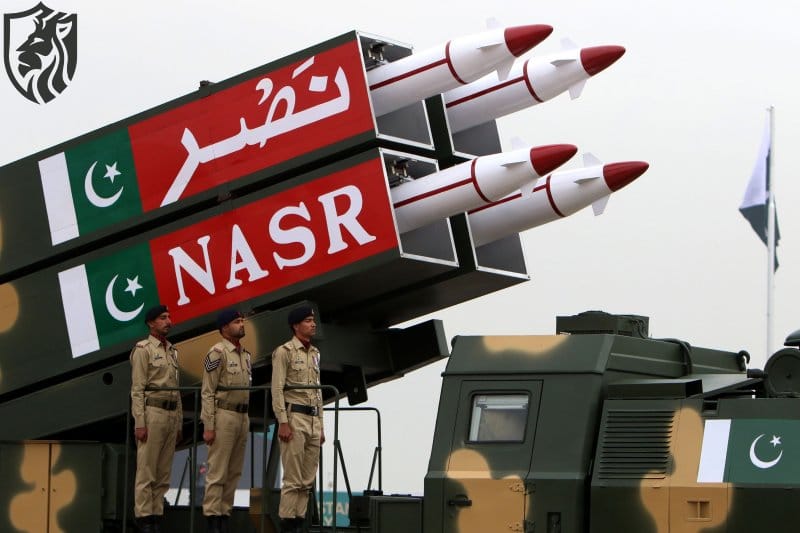
Overview of US Sanctions
The United States has placed new sanctions on Pakistan’s missile program, calling it “discriminatory” and harmful to regional stability. These sanctions specifically target groups involved in developing long-range missiles like the SHAHEEN series. The US State Department states that the goal is to stop what they allege is the spread of weapons.
Pakistan’s Reaction
In a firm statement, Pakistan’s Ministry of Foreign Affairs condemned the sanctions, stating they might have “dangerous effects on the strategic stability of our region and beyond.” Pakistan also accused the US of being inconsistent, noting examples where other countries faced no such restrictions. The sanctions freeze US assets for the targeted groups and prevent American citizens from doing business with them.

Entities Affected
The recent sanctions point primarily at the National Development Complex in Islamabad, which plays a key role in missile development. Other mentioned entities include Akhtar and Sons Private Limited, Affiliates International, and Rockside Enterprise. The US claims these companies help acquire materials and technology for long-range missiles.
Historical Background
Pakistan declared itself a nuclear power in 1998 after testing weapons in response to India’s nuclear developments. Since then, Pakistan has created various missile systems and regularly tests them to strengthen its defense.
US Worries About Emerging Threats
At the Carnegie Endowment for International Peace, Deputy National Security Adviser Jon Finer noted concerns about Pakistan’s missile advancements. He warned that these developments could allow Pakistan to hit targets well beyond South Asia, even potentially reaching the US. “Pakistan’s advanced missile technology raises serious questions about its intentions,” he said.
Israel’s Influence on US Sanctions
There is speculation about whether Israel has influenced US sanctions against Pakistan’s ballistic missile efforts. Some critics suggest that Israel’s concerns about regional security, particularly regarding Pakistan’s nuclear and missile developments, might have prompted the US to take action.
Israel has historically opposed any advancements that could enhance the power of nations it views as threats, especially those with ties to its adversaries. Although there is no direct proof of Israel’s involvement, its close diplomatic and military relations with the US suggest that such influence could be possible. The sanctions focus on groups connected to missile production, which may fit into Israel’s larger plan to limit potential threats in the region and elsewhere.
Pakistan: A Growing Threat to Israel
After diminishing Iran’s missile capabilities, Pakistan stands as the primary threat to Israel in this region. Pakistan’s missile technology, including systems like the Shaheen and Babur, is considered superior to Iran’s arsenal.
With better targeting, longer ranges, and improved guidance, Pakistan’s missile program outpaces Iran’s efforts. This technological advantage, along with Pakistan’s nuclear status, makes it a significant challenge for Israel’s security. The advancements in Pakistan’s defense sector highlight its strategic importance and pose concerns for Israel regarding its military supremacy in the area.
Do US sanctions really affect Pakistan’s missile program?
It is unlikely that US sanctions will have a meaningful effect on Pakistan’s missile program because the country is largely able to defend itself. With its own technological resources, Pakistan’s missile projects, including the advanced Shaheen series, are strong and mainly independent of outside help.
Years of sanctions have led Pakistan to prioritise local production and collaborate with trusted allies, like China. While some minor logistical issues may arise due to sanctions, they are unlikely to hinder missile development or deployment. Pakistan’s ability to be self-sufficient keeps its strategic deterrence in place, maintaining regional power balance and posing a credible threat to its opponents.

Double Standards in US Sanctions on Pakistan
India and Israel worked hard to get the US to put sanctions on Pakistan, trying to stop its missile and nuclear progress. However, as India conducts hypersonic missile tests, the US imposes sanctions on Pakistan, demonstrating a blatant disregard for American policy.
The US seems to treat Pakistan differently than its allies; it supports India, despite its own missile programs. Being an enemy of the US is clearly risky, but being allied with it might be just as dangerous since the changing priorities of US foreign policy can put countries in a weak position.
Pakistan’s Geopolitical Dilemma
Pakistan finds itself in a challenging situation, as it must decide between aligning with China or the US. It cannot keep equal ties with both, as global politics require clearer partnerships. While Pakistan has enjoyed connections with both nations, increasing tensions between the US and China force countries to pick a side.
China provides economic benefits and military help, while the US offers security connections and global influence. Due to its economic and security limitations, Pakistan must determine which alliance aligns best with its long-term goals, as managing both options is becoming increasingly impractical.
US Sanctions on Pakistan’s Missile Program: A History of Restrictions
This incident is not the first time the US has placed sanctions on Pakistan’s missile program. Previously, the US targeted companies from China and Belarus that supplied important parts for Pakistan’s missile development.
These sanctions stem from US fears about the spread of missile technology and its possible destabilising effects on regional security. By limiting access to vital resources, the US aimed to slow down Pakistan’s missile progress, especially its long-range and nuclear-capable systems, which caused concern internationally regarding arms races and efforts to prevent proliferation.
India Faces US Sanctions While Celebrating Pakistan’s
While many in India are pleased about the US sanctions on Pakistan, it’s crucial to remember that India also has faced sanctions. The US sanctioned fifteen Indian companies related to the Russia-Ukraine war. The US imposed these sanctions on the companies for allegedly breaking US laws related to the conflict.
The companies faced accusations of aiding entities associated with Russia, thereby drawing international attention to the issue. This situation shows the complexities of global politics, where both nations face difficulties, despite their rivalries, in handling international sanctions and their wider effects on national interests.
Key Aspects of Pakistan’s Ballistic Missiles
Long-Range Capability:
Pakistan has equipped its SHAHEEN series for long-range operations, potentially altering the strategic landscape.
Advanced Rocket Systems:
Improved rocket engines show significant improvements in technology.
Greater Precision:
New guidance systems enhance targeting accuracy, making the missiles more effective.
Strategic Implications
Effect on Regional Stability
Pakistan claims that sanctions disrupt the existing balance of power in South Asia, where both India and Pakistan have nuclear capabilities. Such actions could increase tensions.
Geopolitical Consequences
These sanctions could harm US-Pakistan relations, pushing Pakistan closer to global powers like China and Russia, which might shift current alliances.
Issues of Fairness
Pakistan has accused the US of unfairly applying sanctions, pointing out that it ignores similar behaviours in other nations. This perceived unfairness harms trust and complicates diplomacy.

Pakistan’s Justification of Its Program
The Ministry of Foreign Affairs has questioned the validity of the evidence behind the sanctions, calling them ungrounded and speculative. Pakistan asserts that they enforced past sanctions without solid proof, casting doubt on their credibility.
Wider Implications
For the United States
These sanctions show the US’s goal to prevent the spread of missile technology. Still, they highlight the difficulty of balancing national security with maintaining important partnerships.
For Pakistan
While these actions may hinder Pakistan’s access to certain technologies, they also illustrate the ongoing complexities in international relations. Technology will not stop the missile programme. Pakistan might look for other materials and technology sources, making its defense partnerships more varied.
For South Asia
The sanctions could make current tensions worse in a region already full of rivalry. India and Pakistan might accelerate their military programs, raising their chances of conflict.
Conclusion
The US sanctions against Pakistan’s ballistic missile program are an important change in international diplomacy. While intended to limit weapons spread, these actions have wider effects on regional stability, US-Pakistan relations, and global politics. If both nations handle these sanctions openly and justly, they can aim for a more stable and secure future.










